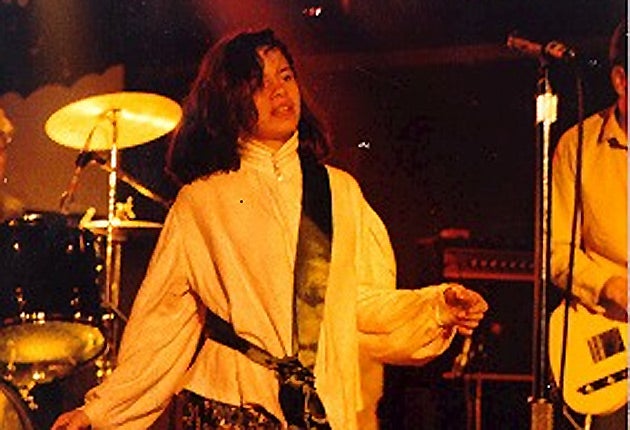Natalie Merchant, Brighton Dome

It's not often that a gig is set in motion by the click of a slide projector but then we have come to expect something more from Natalie Merchant, the 46-year-old singer-songwriter who has long left behind the folk-pop proselytising of her 10,000 Maniacs days and settled into her role as a solo artist of rare maturity and depth.
The bulk of tonight's show is drawn from her new LP, Leave Your Sleep, a hugely ambitious and beautifully realised double album comprising children's poems and nursery rhymes set to a dizzying range of musical styles, from Dixieland, big band and Cajun to Balkan folk and kletzmer. Six years in the making, the project was inspired by Merchant's own experience of motherhood and the stories she read to her young daughter Lucia whom she calls her "main collaborator".
Tonight's show is as much a literary lesson as a pop concert as Merchant offers tantalising glimpses into the life and work of 19th and early 20th-century writers and poets, from e.e. cummings to Edward Lear, against a backdrop of the poets' portraits and illustrations from their books. We learn of Robert Louis Stevenson's sickly childhood and his romance with a married woman from San Francisco; of the child poet Nathalia Crane, a prodigy from Brooklyn; and of Lydia Huntley Sigourney, a 19th-century poet and defender of Native American rights.
Looking suitably bookish in shift dress and court shoes, Merchant nevertheless brings a sparkle to the proceedings, breaking into a flamenco dance for Mother Goose's "The Man in the Wilderness", swaying beatifically to Edward Lear's "Calico Pie" and sitting down at the edge of the stage for Laurence Alma-Tadema's "If No One Ever Marries Me". Her version of "The Sleepy Giant" by Charles E Carryl is delivered with a broad, mischievous grin.
On the album, Merchant brought in over 100 musicians to help her capture the cultural and historical diversity of these poems though here she is simply flanked by two guitarists and a cellist, leaving her voice to do all the hard graft. It brings extraordinary pathos to verses by the likes Charles Causley and Gerard Manley Hopkins that tackle such themes as war, famine and death, and carrying us into an extended greatest-hits encore spanning Merchant's solo days. Thirty years into her career, this is Merchant at her most vital.
Subscribe to Independent Premium to bookmark this article
Want to bookmark your favourite articles and stories to read or reference later? Start your Independent Premium subscription today.

Join our commenting forum
Join thought-provoking conversations, follow other Independent readers and see their replies